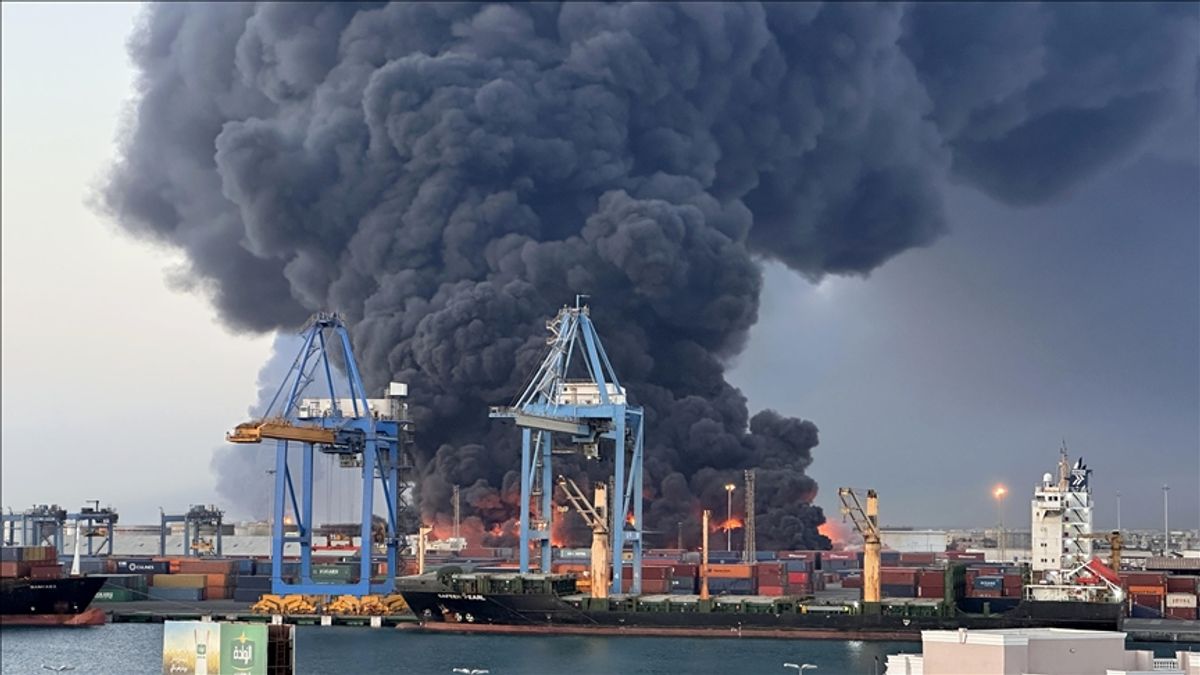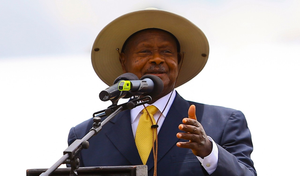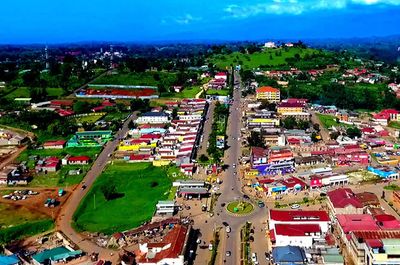
Before the recent attacks, people were able to go out at night in Port Sudan to enjoy themselves. Lately, a plume of thick smoke has dominated the skyline in the wake of attacks.
Once seen as a relatively safe haven from Sudan’s devastating civil war, Port Sudan is now reeling from days of bombardment from the Rapid Support Forces (RSF) paramilitary group. Days of drone attacks, targeting fuel depots, and its serenity.
The civil war has been a struggle between the leaders of the RSF and the Sudanese Army for more than two years. It has pitted Generals Bruhan and Dagalo, and has created one of the world’s worst humanitarian crises. It has forced more than 12 million people from their homes.
This came about after the long-serving ruler, …………………, was deposed. He is currently in prison, and has been for the last six years.
Since Sudan’s civil war started in 2023, humanitarian agencies have depended on Port Sudan as a gateway to bring in aid. It was the country’s only functional international port, both for the water port and the airport. It has been used by organisations such as the UN’s World Food Programme (WFP) to deliver food assistance.
“Port Sudan is our main humanitarian hub,” said Ms. Leni Kinzli, WFP spokesperson for Sudan. In March, we had almost 20,000 metric tonnes of food distributed, and I would say more than half of that came through Port Sudan,” she told the British Broadcasting Corporation (BBC). The WFP has said that there is currently famine in 10 regions of the country, with 17 more at risk.
Many aid agencies are now concerned that these attacks could block the flow of aid, making the humanitarian situation even worse. “This is going to severely constrain the delivery of life-saving food and medical supplies, which will risk further deterioration of the already critical situation,” Mr. Shashwat Saraf, the Country Director for the Norwegian Refugee Council (NRC), said, adding that while agencies will look for other routes into the country, it will be challenging.
Before the attacks, people would gather at the coast, and some would watch football in local cafes. But the electricity blackout has left the city in the dark, and residents are choosing to stay at home for security reasons.
Water, a vital commodity, has become scarce. Now people have to wait for hours for water vendors to show up. The explosions at the fuel depots have left the city without the diesel used to power the pumps that bring up the groundwater. Whereas a day’s supply of water used to cost 2,000 Sudanese pounds ($3.30; £2.50) sometime ago, now the water vendors charge five times that amount.
Water is not the only challenge in Port Sudan. Even though markets and shops are open, there are queues of cars outside the city’s petrol stations as people desperately wait for fuel. It takes not least five hours to get petrol. This was rare in Port Sudan.
It used to be one of the few places in the country that was considered protected from the worst of the civil war. People would migrate from other parts of the country to here.
Mrs. Hawa Mustafa, a teacher from el-Geneina in Darfur, in the west of the country, sought refuge in Port Sudan. Darfur is probably the worst-affected part of the country. Now that Port Sudan has faced a similar situation to Darfur, Mustafa is unsure what she will do next. She has been living with her four children in a shelter for displaced people for over two years.
Hawa lives without her husband, who has been unable to leave their home due to the deteriorating security situation. She is now responsible for her family. “I don’t know where to go next if things get worse in Port Sudan. I was planning to go to one of the neighbouring countries, but it seems that this dream will no longer come true.”
She told the BBC that, “Life has changed completely. We are struggling to cope. The fear is constant. We don’t know what to do and where to go.”














Ikebesi Omoding
Ikebesi Omoding is the acclaimed author of a weekly column titled: From the Outside Looking In
Leave a Comment
Your email address will not be published.